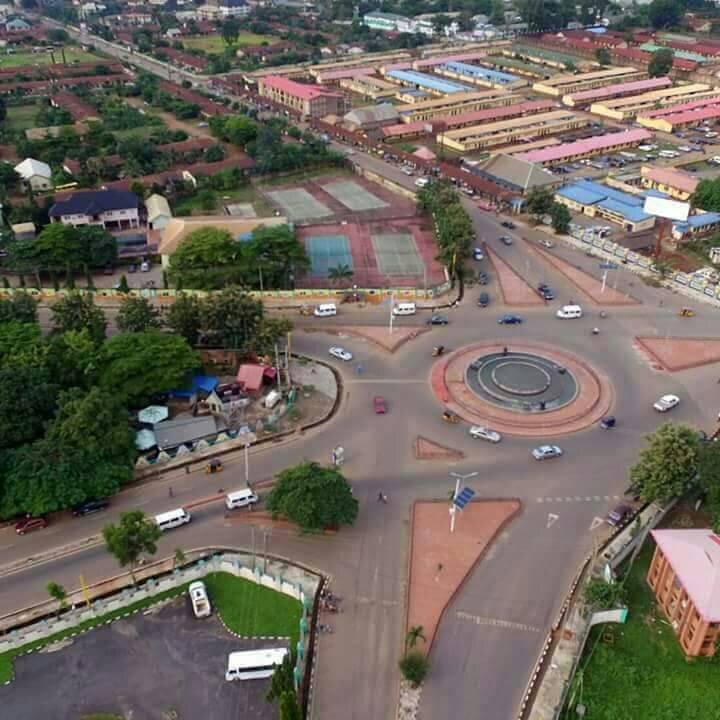
Ebonyi State
The theme of the State is ‘The Salt of the Nation’ which is inspired by the high deposit of salt in its Uburu and Okposi salt lakes.
The Ezza and Afikpo in today’s Ebonyi State have had a long history of prominence in the State. These warrior clans were in independent partnerships with the greatest Igbo confederacy, the Aro (17th C to the beginning of the 20th C). They served as mercenary warriors who helped the Aro in annexing territories in what is Southern Nigeria. They served as war mercenaries in places like the Ohafia, Edda, Abiriba and Aro most prominently. With these alliances, raiding parties were formed, strategies of warfare were invented and they consolidated victories in the territories they considered enemies. In exchange for their services, they were paid and got the Aro confederacy security.
With colonialism came a new order. Political and economic institutions became mangled to serve the British interest like in other colonies. Ebonyi axis was a major feeder for palm oil produce and taxation.
With the independence of Nigeria, State creation followed almost immediately from the old regional governments. The military government of General Sani Abacha saw to the creation of Ebonyi State from parts of both Enugu State and Abia State, which were the Abakaliki division from Enugu State and the Afikpo division from Abia State respectively.
Ebonyi State presently has thirteen local government areas as well as local development centres created by the State government.
HISTORY
GEOGRAPHY
With a land area of about 5,935 sq. km, Ebonyi State ranks the 33rd largest in terms of land mass out of the 36 States in the Nigerian federation. Ebonyi shares borders with Benue State to the North, Enugu State to the west, Imo and Abia States to the south and Cross River State to the east.
Ebonyi had an admixture of the Savanna and semi Tropical vegetations. A humid, sandy and marshy soil, that enables the land hold moisture.
It enjoys a reputation for having the best locally grown rice because its naturally inherent salinity from the ground.
Estimations from the 2006 census pegs the population at 4,339,136 based on the 2005 census and the inhabitants are spread across 5,935 square kilometers. The state is predominantly dominated by the Igbo with some clusters of other ethnic groups from neighbouring states.
DEMOGRAPHY
ECONOMY
The people were predominantly farmers and cultivated farm produce like palm, yam, maize, legumes, cassava etc. Another resource that stood this area out was the abundance of salt. Traders journeyed from far and beyond to buy or batter salt as it was not ubiquitous like the regular vegetables of farm produce. The salt was not only used for to add taste to food, but for preservation. It was a scarce commodity, highly sourced and valued. The scarcity of salt gave it a legal tender status. It acted as money on many occasions.
The economy of Ebonyi State is currently majorly agrarian. The bulk of the population is still involved in subsistence farming. As is in the modern agricultural economy, the lion’s share of the profit is got by those who can afford mechanized farming, which is still a far reality for most of the farmers. As a result, the standard of living is lower than expected because high labour capital is invested for little ROIs.
A leading producer of rice, yam, potatoes, maize, beans, and cassava in Nigeria. Rice and yams are predominantly cultivated in Edda with other solid mineral resources such as lead, crude oil, and natural gas, but few large-scale commercial mines.
The government of Dave Umahi introduced some agricultural polices new to the people, which if executed effectively would boost the wealth of the State and the standard of living of the people. With the term he tagged the ‘agricultural revolution’, his administration gave several incentives have been given to investors in the agro-allied sector to encourage production in when he became Governor in 2015. Going large scale with mechanized farming, about 40 tractors were procured for rice production in the earmarked 40,500 hectares of land. the management of the farmlands were given to the local governments and other agencies with the promotion and allowances of the workers pegged to output of farm produce.
Apart from the direct jobs created by farming there are technical, marketing, branding, professional management of the Mills and sales job opportunities that are available to the people. Notwithstanding, more prospects greatly abound in the State.






